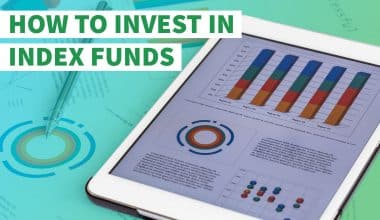Beginners with little experience in investing might be unsure of where to begin. Investing isn’t just for the wealthy, which is good news. Beginners can start investing with a little money. You can find a course or two where beginners can learn more about investing. With the appropriate resources and an investment strategy in place, beginners can successfully invest. Your financial situation and goals will determine where and how you should invest your money.
To get started with investing, beginners should choose a strategy based on the amount they’ll invest, the timeframes for their investment goals, and the level of risk that feels reasonable to them. To help you with your investment decisions, use this beginner’s money investing checklist.
Investing for Beginners
If this is your first time investing money, you might be unsure of where to begin. The good news is that investing isn’t only for the rich. With the proper equipment and an investment strategy in place, beginners can invest. The idea of investing can be intimidating for a beginner. One reason why investing can be challenging to understand is the abundance of jargon that is associated with it.
Steps for Investing as a Beginner
#1. Set up an Emergency Account
Create an emergency fund first, so you have access to large sums of money if you need them right away. The emergency fund should be kept separate in a savings account so that you only access it when necessary.
#2. Begin Your Investing Journey as Early as Possible
The best way to get reliable returns on your money is to invest while you’re still young. Starting on a small budget is feasible. Due to low or no investment minimums, zero commissions, and fractional shares, investing with smaller sums of money is now easier than ever. Beginners should start investing as soon as possible.
Numerous investments are readily available for relatively small sums, including mutual funds, exchange-traded funds, and index funds. Of course, the stock market will experience ups and downs, but investing early gives you decades to weather these fluctuations while also allowing your money to grow. If you must start small, do so right away.
#3. Decide How Much to Invest
Your financial situation, your investment goal, and the deadline for achieving it all will determine how much you should invest. You can begin modestly and gradually work your way up. Starting small is acceptable. Knowing the minimum investment requirements of the majority of investing platforms will help you narrow down your options.
#4. Determine Your Investing Goals
Your financial objectives should be your primary consideration as you browse various products and services. For instance, investing in long-term goals can result in higher overall investment returns, but you might need to hold onto your funds for a longer time frame.
You might decide to look for a lower rate of return with a shorter period for investing if your goals are short-term. Always be open to varying your strategy. Retirement funds can diversify your portfolio, allowing you to grow with the market and be less dependent on the performance of a single company.
It’s crucial to remember that all types of investments involve some level of risk. Your returns will fluctuate as the market does, which is known as volatility. You could make a lot of money in some years and lose money in others. It will be easier for you to choose what investments to make if you are aware of your risk tolerance, or how much volatility you can personally handle.
#5. Open a Brokerage Account
Open a taxable brokerage account that allows withdrawals at any time without incurring further taxes or penalties. The contribution limits for IRAs are frequently much lower than those for employer-sponsored retirement accounts, so those who have reached their IRA retirement contribution maximum and want to keep investing should consider using brokerage accounts.
#6. Pick an Investment Strategy
Your investment strategy is based on the amount of money you need to save to reach your goals, as well as your time horizon. The best way to invest in stocks is through inexpensive stock mutual funds, index funds, or exchange-traded funds (ETFs). Due to the risk associated with stocks, it is preferable to keep your money safe in an online savings account, cash management account, or low-risk investment portfolio if you are saving for a goal that will require the money in less than five years.
#7. Spread Your Money Out
You should diversify your investments if you’re a new investor. In other words, diversify your investments to lower your risk by distributing your funds among them. The computer program might automatically put together a diversified portfolio for you based on your investment platform.
Investment diversification might be a default setting if you use a robo-advisor or app, for instance. Products like mutual funds, index funds, or exchange-traded funds (ETFs) assist many investors in spreading the risk. These investment products automatically distribute your money across several industries and sectors by offering a variety of asset classes, such as stocks and bonds, from different industries and sectors in place of just one stock.
Money Investing for Beginners
#1. Stocks
The ownership stake in a specific company is represented by a stock. Equities is another name for stocks. Depending on the company, the share price at which stocks are bought can range from a few dollars to several thousand.
#2. Bonds
In essence, a bond is a loan to a business or government organization that promises to repay you over a predetermined period. You receive interest while waiting. Due to the certainty of knowing when and how much you will be paid back, bonds are typically less risky than stocks. However, since bonds have lower long-term returns, they should only represent a small portion of a portfolio of long-term investments.
#3. Mutual Funds
An assortment of investments that have been bundled together is a mutual fund. Investors who use mutual funds can buy a variety of stocks and bonds in one transaction rather than having to choose individual securities. Mutual funds are naturally more risk-averse than individual stocks because of their inherent diversification.
#4. Exchange-Traded Funds
An ETF, like a mutual fund, combines many individual investments. The distinction is that ETFs trade continuously throughout the day like stocks and are bought at a share price. ETFs are a good choice for novice investors or those with limited funds because their share price frequently falls below the mutual fund’s minimum investment requirement. ETFs can be index funds as well.
#5. Real Estate
One of the most secure and low-risk forms of investment is real estate. To buy a second home to rent out, however, not everyone has the necessary funds or meets the requirements for a mortgage. There are other ways to make money with real estate besides the conventional one of renting out a property. The key to success is picking your property’s location wisely.
#6. Cryptocurrencies
The price of Bitcoin, the most well-known cryptocurrency, increased from less than $1 to an estimate of $47,319.30. Investing in Bitcoin and other cryptocurrencies have made many people wealthy, but it’s important to keep in mind that they are very risky. Experts advise only investing 10% of your income in cryptocurrencies due to their high volatility.
Ways to Start Investing as a Beginner
Keeping it simple is the best strategy for novice investors. This could entail automating regular monthly deposits from your savings to your brokerage account. Setting reminders to review your budget and determine whether you can increase your investment level is another option.
To begin investing as a beginner, think about the following possibilities.
#1. Set up a 401(K) Retirement Account Through Your Employer.
Ask your HR department if your business has a 401(k) retirement plan if you haven’t already. They can show you the steps to take so that you can begin investing right away.
#2. Try a Robo-Advisor.
A digital platform known as a “robo advisor” offers low-cost, algorithm-driven financial planning services using automation. It distributes investments based on your circumstances and objectives. They handle the investment process automation for you. The following are the questions the robo advisor poses to you:
- Age
- Income
- Envisioned retirement age
- Capacity for risk
- The length of time you plan to invest the money you want to put into stocks
- Other financial objectives
Numerous robo-advisors exist that are made to simplify investing. SoFi, Vanguard, Stash, and other popular choices are available. The robo-advisor makes investments based on the answers provided by investors following their personal preferences. Given that they provide direct indexing services, some robo-advisors don’t even require you to open a brokerage account for this reason.
The best part about using a robo-advisor is that you get financial recommendations without having to pay commissions
#3. Download a Beginner Investing App.
Setting up an account with several investing apps is simple and free. They include Wealtgfront, Acorns, Robinhood, SoFi, etc.
After downloading the app, follow the setup instructions to create an account and start making investments through your online broker. Many of these apps allow you to begin investing with very little money, as little as $5 at times. Individual stocks are the most popular way to invest in these applications.
#4. Make Direct Investments Using Your Brokerage Account
Many banks double as brokerage houses. You can then start buying stocks right away by making a direct transfer of funds from your bank account into your brokerage account.
#5. Be Patient
The market is extremely volatile, and factors like political unrest and economic uncertainty have an impact on investment vehicles, so it’s crucial to have patience.
The process of investing takes time, so investors must have patience and wait for the market to change in their favor.
Investing for Beginners Course
Learning more about the stock market and acquiring skills you can use to increase your wealth can both be done through investing courses. The best online investing course for beginners can teach you how to manage your money wisely and make plans for the future, regardless of whether you have ever invested a penny or are an expert investor.
#1. Stock Market From Scratch for Complete Beginner
This investing course for beginners is available on the Udemy platform. Over 196,000 courses and over 52 million users make up the online teaching and learning platform known as Udemy. A course like Stock Market From Scratch for Complete Beginners falls under this category. You can become an expert stock market trader by purchasing Stock Market From Scratch for $49.99.
You can learn at your own pace and according to your schedule because the class uses pre-recorded video lessons. We selected the stock market for absolute beginners due to its accessibility to new investors and its thorough coverage of investing-related topics. An internet connection and a computer are all you need to get started.
#2. The Investing and Trading Library from TD Ameritrade
If you want to learn more about investing for free, TD Ameritrade’s extensive library of free online beginners’ investing courses is an excellent choice. These immersive courses allow you to delve deep into the subject matter while also connecting to a plethora of other free articles, podcasts, and webcasts. It is completely free to use, has a large content library, and is appropriate for investors of all levels of experience.
#3. Investing Classroom from morningstar.com
This beginners’ course for investing offers a huge selection of free, in-depth courses. You can enroll in Morningstar’s free Investing Classroom if you prefer a more in-depth approach to invest. You can access a sizable online catalog from them without having to make any financial commitments.
The program offers seven different course categories that you can choose from, including funds, portfolios, stocks, bonds, ETFs, featured content, and environmental, social, and governance (ESG) investing.
#4. Bear Bull Traders
This was selected due to its vibrant trading community and live chat feature. Live chat and the site’s active trading community were factors in the selection. With the elite membership, you also have access to the psychology team and receive weekly mentoring.
Investing for Beginners Podcast
The best free tools for learning the ins and outs of all types of investments are investing podcasts, which have become very popular. These podcasts offer high-quality, educational, and easy-to-digest content to both beginners and experts. Furthermore, they have free access to some of the most powerful and brilliant minds in the world of investing.
#1. We Study Billionaires
On the most popular stock investing podcast in the world, We Study Billionaires, hosts Stig, Trey, Clay, and William speak with and research well-known business billionaires like Warren Buffett and Howard Marks. They share their knowledge with you and demonstrate how you can use their stock market investment strategies.
The show’s audio and editing quality are excellent, which adds to the variety of topics covered and the presence of distinguished guests to create a satisfying listening experience. New episodes of We Study Billionaires, Richer, Wiser, Happier, and Bitcoin Fundamentals are released every Tuesday, Monday, and Thursday, respectively. The episodes of this podcast typically last between 40 and 60 minutes.
#2. MotleyFool Money
Chris Hill of the Motley Fool and other analysts gather to discuss the most significant business and stock investing news of the previous week on Motley Fool Money. As part of their discussions, they interpret news stories into potential benefits and drawbacks for investors. Additionally, they offer stock recommendations that may gain from those news stories.
Furthermore, they do an excellent job of introducing listeners to new industries and companies that they may not have heard of before. The audio quality is superior, as it would be for any show of this caliber. As a result, it permits a polished and enjoyable listening experience. You can visit their website, https://www.fool.com/ for more information. Every Tuesday and Friday, a brand-new episode is released. Each episode lasts between 35 and 45 minutes on average.
#3. Planet Money
One of the top podcasts on money and economics is still Planet Money. Its content library contains more than 1,000 episodes that cover almost any subject you might be interested in learning about. New episodes of “Money” are released every Wednesday and Friday. They typically last 20 to 30 minutes. Website: https://www.npr.org/sections/money/. Planet Money covers a range of subjects, including politics, business news, current events, personal finance, investing, macroeconomics, and more.
#4. Millennial Investing
This program is specifically geared toward younger audiences, with a focus on people between the ages of 18 and 40. To inform and motivate the Millennial generation, Robert Leonard and Rebecca Hotsko speak with successful business owners, executives, and investors.
Instead of jumping right to investing in complicated securities, the podcast teaches you how to build a solid personal financial foundation and how to earn more money so you have more money to invest. the actual investments you should make with the money you have (or will have). Release of new episodes: Every Tuesday, Thursday, and Friday, Episodes last between 30 and 60 minutes. The subjects covered include how to begin investing, stock investing, personal finance, growth investing, value investing, Bitcoin, cryptocurrencies, entrepreneurship, side jobs, and others.
What Is the Importance of Beginner Investing?
#1. Increase Your Savings Over Time
One additional advantage of investing for beginners is that it doesn’t matter how much money you have to invest at first.
Beginner investing also has the advantage of being unconstrained by initial capital. Starting small, even with just $100, enables you to develop your skill set and discover what works best for you in the short term. You will gradually start saving more as your investment account increases.
#2. Combat Inflation Effects
Over time, inflation reduces the value of money. meaning that a dollar today will be worth less tomorrow. You can earn interest and fight inflation by investing your money.
#3. Maintain Your Comfort Level in Retirement
Although your country may offer social security or pension benefits, they might not be enough to maintain your standard of living. Given that some aspects of life can become expensive, having a sizable nest egg is necessary to live comfortably.
How Much Money Should a Beginner Invest for the First Time?
Despite what you may believe, you can start investing with just $100. Making sure you are financially prepared to invest and that you consistently make investments over time, rather than the amount of money you start with, is what matters most.
Is $100 Enough to Start Investing?
It is, indeed. You should take into account both your financial resources and level of experience. You could always begin with $100 and gradually increase it as you gain more expertise.
Conclusion
Starting your investment journey is generally acceptable. But first, do some research if you want expert financial planning or specialized investment guidance. Whatever investment path you choose, make sure you are not investing in anything you do not fully comprehend. If you’re uncertain about something, ask those who have more knowledge.
Investing for Beginners FAQs
How Much Money Should a Beginner Invest for the First Time?
You can start investing with just $100. Making sure you are financially prepared to invest and that you consistently make investments over time, rather than the amount of money you start with, is what matters most.
What Is the Importance of Beginner Investing?
- Increase Your Savings Over Time
- Combat the effects of Inflation
- It ensures comfortable retirement
Is $100 Enough to Start Investing?
It is, indeed. You should take into account both your financial resources and level of experience. You could always begin with $100 and gradually increase it as you gain more expertise.
Related Articles
- BEST PLACE TO BUY STOCKS: 21 Top Picks for Beginners & Pros 2023
- Cryptocurrency For Beginners: The Concept of Cryptocurrency (Beginners Guide)
- HOW TO INVEST IN THE STOCK MARKET: Everything You Need
- INVESTMENT STRATEGIES: Top 20 Strategies to Success in 2023.
- INVESTING MONEY: Guide To Investing Money For Beginners
- INVESTING FOR BEGINNERS BOOK: 12 Great Options for 2023






